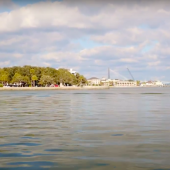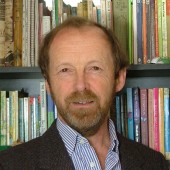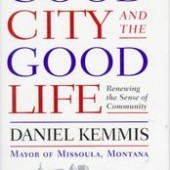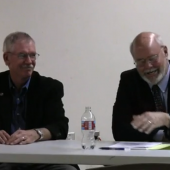
What if a river or a creek were to tell us its story? In this short film and interview, we offer a glimpse into the ecological philosophy guiding our efforts to create “more sustainable ways of living with water and how to appreciate its capacities to support all life.”
Continue ReadingMovies as Mirrors is a conversation podcast in which guests discuss films that reflect a social issue that interests or affects them. On this episode, Professor of Humanities George Handley discusses the 2011 film “The Tree of Life” with podcast creator Benjamin Thevenin and guest-host Camlyn Giddins. The conversation explores the film’s representations of our relationship with the natural world, and in particular its use of eco-theology to introduce its audiences to ecological issues. We discuss the value of film as environmental education for the public and the need for more nuanced cinematic representations of issues like climate change.
Continue ReadingThis editorial overview provides an introduction to this special Journal of Sustainability (JSE) issue devoted to water and climate change, which is being released during United Nations World Water Day 2020. The article contextualizes some of the water security risks that are exacerbated by climate change, such as increasing floods and droughts. This piece further provides a brief overview of the articles in the special water and climate issue of the JSE.
Continue Reading
In this insightful, foundational and wide-ranging interview, Jaimie Cloud makes the case…and defends it…for the prime importance of Education for Sustainability (EfS). Her ground-breaking work and years of experience bring an authoritative voice to this nascent field and give confidence that, as she says, “it all begins with a change in thinking” and “we just have to educate for it.” Her impressive accomplishments and the examples she brings to the interview are a must-read of inspiration for anyone involved with sustainability education.
Continue Reading
In this wide-ranging interview, author and professor Stephen Sterling brings forth a good case for how academic can work to see collaborations that bring policy into practice, especially at a local level.
Continue Reading
In this revealing interview, Daniel Kemmis shows how he has brought sustainability issues into play as mayor of Missoula Montana and as a leading state legislator in Montana. So often, ideas remain in the abstract, but Daniel Kemmis’ experience shows the reality of how they can be brought into the political realm, along with all its imperfections. He brings weight to the call to “act locally.”
Continue Reading
Jim Horton, President of Yavapai College, and Dan Garvey, President of Prescott College, share the stage in this forum focusing on how they and their institutions respond to the demands for sustainability within our current social, economic and ecological context. What unique challenges do a community college and a private liberal arts college face? What shared visions emerge? What unique roles do each of these institutions play in fostering sustainability for themselves, and for the community that they serve?
Continue Reading